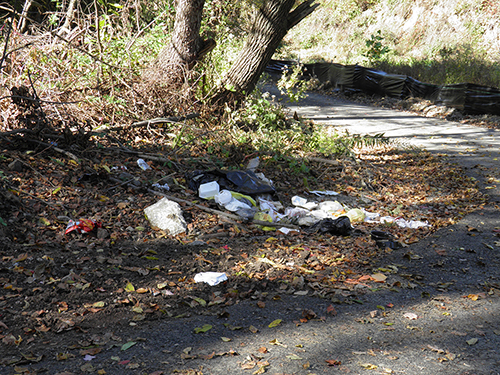5 Reasons Why Plastic Pollution Stinks

5 Reasons Why Plastic Pollution Stinks
Any way you look at it, plastic pollution just plain stinks. Plastic pollution is responsible for a lot of harm. The advantages and convenience plastic products offer is in many instances negated by all of the damage it later causes. There are an abundance of reasons why plastic pollution is a major problem.
- Plastic Trash Will Hang Around Basically Forever – The problem with plastic pollution is that it does not safely break down. Once discarded, plastic trash is here to stay – it will litter streets and fields and waterways and just be in the way while also posing a danger to animals. All litter regardless of its composition is harmful and a problem, but plastic really ups the danger level. When exposed to the elements, plastic breaks apart into smaller and smaller pieces of plastic. The larger the piece of plastic the easier it is to pick it up, and likewise the smaller the piece of plastic the harder it is to clean up. These tiny plastic pieces can degrade soil quality, or accidentally be eaten by animals and be introduced into the food chain.
- Litter is the First Step in a Series of Problems – If litter is not cleaned up it can clog drainage systems which when compromised, may not function properly when needed, and this can and has lead to flooding and cause even more damage. Plastic litter can also collect water and this standing water can create ideal breeding grounds for insects, such as mosquitos – Only one tablespoon of water is needed.
- Cleaning Up Trash Can Get Expensive and Impact the Taxes Consumers and Businesses Pay – A hefty price tag accompanies cleanup efforts, but this cost most municipalities are willing to pay since it is often cheaper than what the cleanup bill could be if the litter problem went unchecked. A study of 95 California cities found that collectively they are spending nearly $500 million annually to clean up litter. This is an extreme expense that is completely avoidable and when finances are directed to cleanup efforts, that means other areas feel the cuts.
- Plastic Litter Causes Harm to Ecosystems and Water Sources – University of Wisconsin-Superior researchers have found plastic particles in all of the Great Lakes. Plastic litter had been discovered in years earlier in Lakes Superior, Huron and Erie, and in the recent research plastic was found in Lake Michigan and Lake Ontario. “The accumulation of plastic particles is a great threat to our natural ecosystem and to the humans who use Lake Superior for our drinking water supply,” said Mary Balcer, director of the Lake Superior Research Institute at UW-Superior.
- All Animals are at Risk from Plastic Trash – More plastic litter equals more of a risk to animals who may mistake the debris as food and ingest it or become tangled in the trash and unable to fend for themselves. No animal is immune from the harm caused by plastic trash from birds to marine animals and everything in between. Research has shown that sea turtles are eating plastic debris at an alarming rate – this can have large ramifications, especially since there are drastically low numbers of some species of sea turtles.
Plastic Cannot Be Avoided – But It Can Be Responsibly Managed
It’s not reasonable to expect to completely remove plastic from our daily lives. There are a lot of useful applications for plastic and in many instances it is completely necessary. There are also a lot of instances in which plastic is created to be disposable and not intended for long-term use.
Single use plastic products can be replaced by durable alternatives, and this simple change can eliminate a lot of the plastic trash the ends up as pollution or in the waste stream. Making the switch to reusable shopping bags and reusable water bottles are two easy ways to reduce the amount of disposable plastic you consume. And when you do use plastic, make sure to utilize recycled content plastic so when the item has fulfilled its usefulness you can dispose of it responsibly by dropping it off in a recycling bin.
What other ways do you reduce your plastic use (and by default all of the negative impacts plastic pollution can cause)?
Tagged




